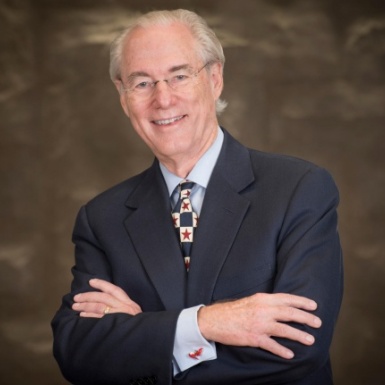New WEF-CEOi initiative is a promising step forward
Sign up and receive information on the latest news and updates.
This post was written for and originally appeared on the World Dementia Council’s blog.
A new global multi-stakeholder partnership being launched is a promising – and necessary – step forward in the global effort to effectively combat Alzheimer’s disease and dementia.
The new global partnership by the World Economic Forum (WEF) and The Global CEO Initiative on Alzheimer’s Disease (CEOi) was announced last month at the WEF Annual Meeting, one of the world’s most important conferences that brings together influential leaders across public health, finance and economics, international and public affairs, science and media.
Alzheimer’s is the biggest public health crisis of this century and this is the kind of coordinated, global action at the scope and scale commensurate with the urgency required to fight this disease, just as has occurred previously in the responses to AIDS, cancer and climate change
WEF approached the Global CEO Initiative on Alzheimer's Disease, an organization of private-sector leaders providing business leadership in the fight against Alzheimer's, about partnering on this effort. CEOi is convened by UsAgainstAlzheimer's, an entrepreneurial, disruptive advocacy and research-focused organization that is pushing for expanding treatments and accelerating towards a cure for Alzheimer’s disease. Prior to last month’s WEF meetings in Davos, CEOi conducted interviews with 30 people in companies and organizations on their views about the most significant needs and gaps that a coordinated global effort should address.
CEOi and the WEF convened a meeting in Davos of a variety of public and private stakeholders, including pharmaceutical manufacturers, biotech companies, government leaders from Japan and the US, international organizations such as the OECD, foundations, groups such as the American Heart Association, healthcare systems such as the Cleveland Clinic and research agencies to shape a collaboration to speed Alzheimer’s innovations to patients.
This partnership and its working groups will be co-led by CEOi and WEF over the next 12 months in collaboration with these industry, government and global health and economic organizations. The work of this group will build throughout the year towards the debut of a comprehensive, coordinated science-driven approach to addressing key challenges to speeding innovation at the 2021 WEF Annual Meeting in Davos next January.
This CEOi-WEF initiative was announced at a WEF session last month featuring Francis Collins, director of the US National Institutes of Health; Michel Vounatsos, CEO of Biogen; and Jo Ann Jenkins, CEO of AARP.
The partnership will explore action in four areas:
- Develop a large, global cohort to speed research and identify new targets for drug development.
- Attract more capital by lowering the risks to investment in biomarkers and speed biomarker research.
- Develop standing global clinical trial platforms with the capacity to support new studies.
- Advance healthcare system readiness across detection, diagnosis, infrastructure and access to treat those with Alzheimer’s and dementia.
The main focus of the year ahead is to secure commitments from policymakers and business leaders through the development of a business plan that will include key activities and metrics for the coalition’s work.
The creation of this new coordinated multi-stakeholder global initiative is yet another reason why I believe that 2020 will be a turning point year in the history that will be written about the eradication of Alzheimer’s.
Earlier this month, the US Food & Drug Administration (FDA) approved an insomnia drug developed by Merck for use among Alzheimer’s patients, who often experience sleep disruptions. In addition, a new oral treatment for mild to moderate Alzheimer's disease has been approved and launched in China, with plans for clinical trials in the US, Europe and Asia starting early this year.
In the months ahead, at least two more novel drug therapies are expected to be submitted by Biogen and Acadia to the FDA for review.
All of these developments are why I believe this year is filled with promise and hope for our cause and our community. I look forward to working with you to make this belief a reality – and to what we can achieve together in the months ahead in our shared goal of stopping Alzheimer’s and dementia.
